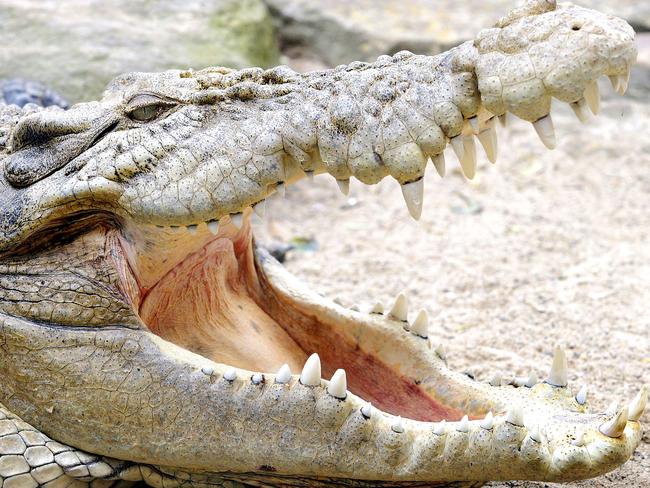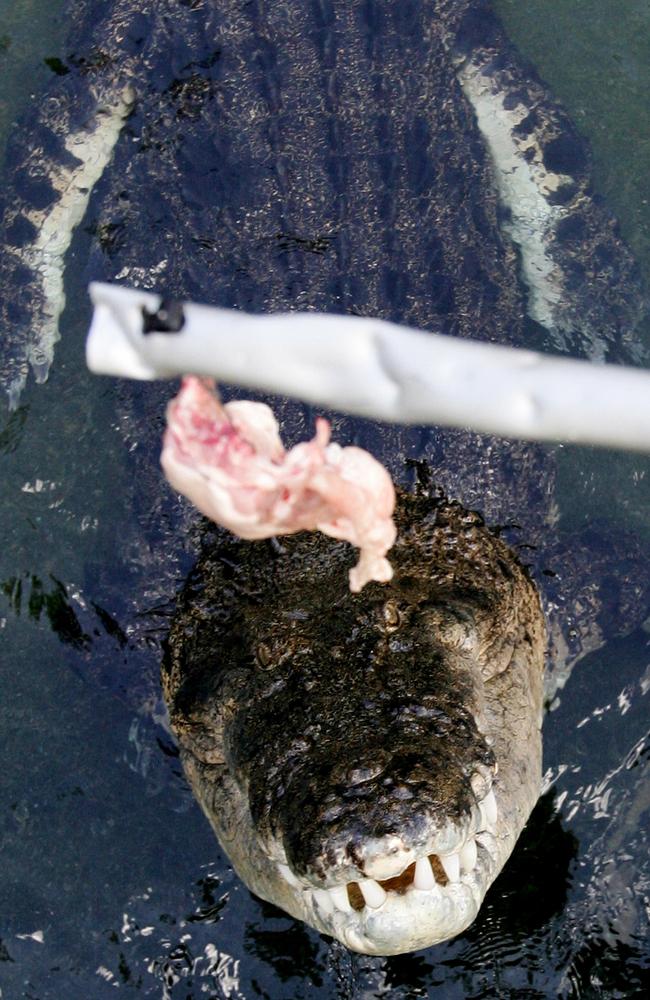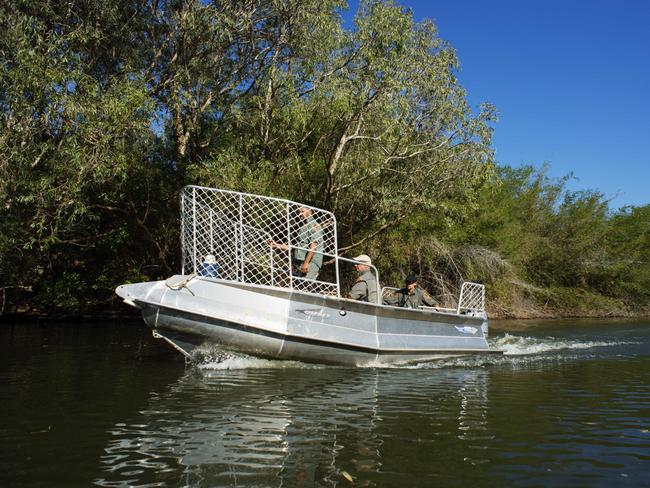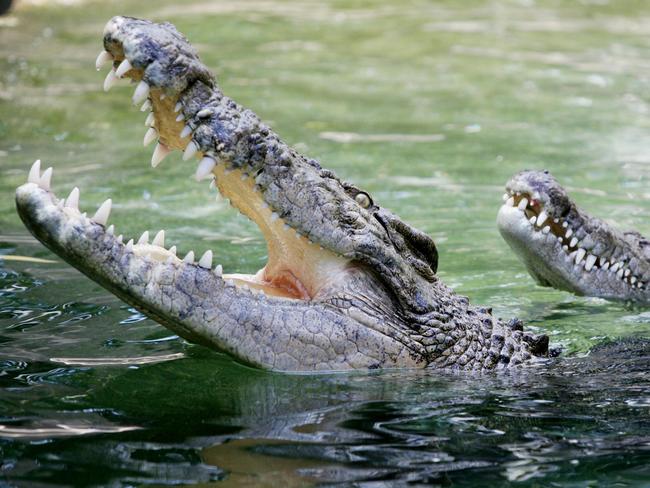Expert says culling is not the answer as residents question rising Northern Territory crocodile population in wake of fatal attack
WITH one crocodile for every two residents, Territorians are asking whether it’s time to do something about the ballooning croc population.

Northern Territory
Don't miss out on the headlines from Northern Territory. Followed categories will be added to My News.
WITH one crocodile for every two residents, Northern Territorians were given a shocking reminder of the horrors that lurk in their waterways at the weekend.
A fatal crocodile attack in Kakadu National Park made international headlines when human remains were found inside a 4.63m crocodile.
The beast is believed to have snatched a 62-year-old man from a boat on the Flying Fox Waterhole on Saturday afternoon while his distraught wife and daughter-in-law looked on.
READ: Crocs are ambush predators, warn experts
The attack has shocked the Territory — and some rogue fishermen have vowed to take to the water armed with shotguns in future.
“If they don’t cull, more people will take their rifle every time they go fishing,” Hemi wrote on the North Australian Fish Finder forum.
But an expert on the killer reptiles, Adam Britton, said culling the ancient reptiles was not the answer.
“Culling crocodiles always comes up as a topic of conversation whenever this happens, but unless you wipe out every single crocodile there’s always going to be some level of risk,” he told news.com.au.

“We know that you also need crocs for healthy fish populations, not to mention tourism and a healthy farming industry, so it’s not so simple to just say, ‘Let’s get rid of all the crocs’.”
Crocodile culling was banned in the Northern Territory in the 1970s and the population has ballooned since.
Mr Britton placed the Northern Territory crocodile population at between 80,000 and 100,000, while another expert, Chase Johnson, told the NT News the numbers exceeded 130,000. This compares to the Territory’s human population of about 235,000.
EXPERT HUNTERS: List of croc attacks
There have been at least 19 fatal croc attacks in the Territory since 1987 — including three in the past year — and Mr Britton said the frequency of attacks was rising gradually.
“Croc populations appear to be levelling out but they’re also moving into more freshwater areas, where the name ‘saltwater crocodile’ can be highly misleading. All crocodiles are freshwater animals at heart, but they’re also highly tolerant of saltwater,” he said.

However, Mr Britton stressed Australia did an excellent job of keeping incidents in check through education and management programs.
“Without that, attacks here would be much, much higher,” he said.
It appeared that the victim had gotten into trouble by placing his hand or arm too close to the water when cleaning out a bucket from the boat.
“This has been identified for many years as a high-risk activity in crocodile habitat, because it puts you very close to the water surface, within reach of a crocodile,” Mr Britton said.
“While it’s difficult to know exactly what did happen, it seems likely in this case that a crocodile in close proximity to the boat, whether there by coincidence or there due to being attracted by the fishing activities reported, struck opportunistically at the splashing at the water surface next to the boat, which presumably resulted in it grabbing the victim and pulling him over the side and into the water.”

Mr Britton said the death was a “most unfortunate reminder” of the need to take care when in crocodile habitat.
“Whether in a boat or on a bank, buckets should be cleaned or filled by attaching them to a rope first, and fish should be retrieved and released using a landing net.
“Always think, ‘How can I do what I need to do without actually getting close to the water?’ And if there is no alternative than to get close to the water, then don’t do it.”
Mr Britton sent his condolences to the family.
“This is a shocking and horrific way to lose someone close to you,” he said.
Northern Territory laws dictate that it is illegal to shoot crocodiles without a permit. Punishments can be as harsh as a $72,000 fine or five years’ jail.

Originally published as Expert says culling is not the answer as residents question rising Northern Territory crocodile population in wake of fatal attack


